2023 conference speakers
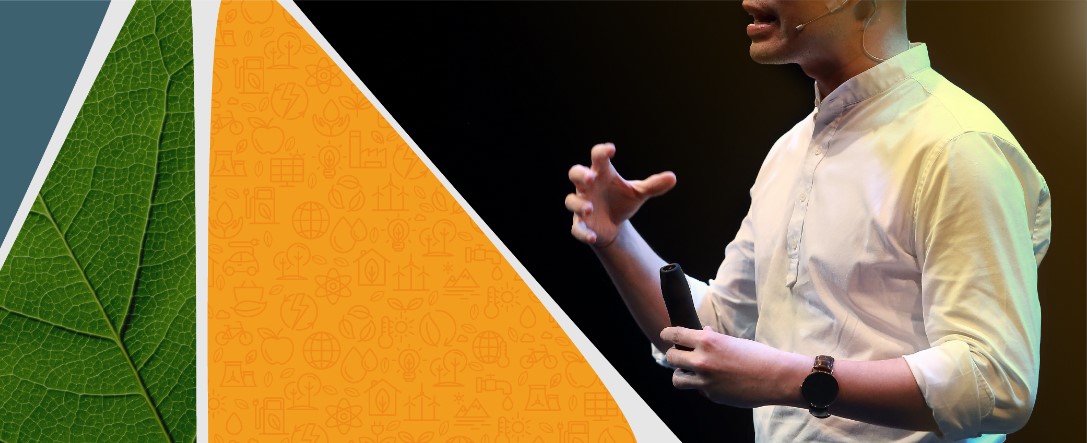
Click on the speaker's image for more information.
Distinguished Speakers
Speakers
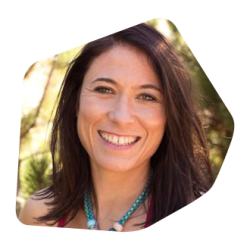
Alexandra Dubini
Vice chair, Marie Curie Alumni Association
Alexandra Dubini is a research assistant at the University of Cordoba, Spain specialized in bioremediation, production of biofuels, especially hydrogen from green algae. She completed her PhD in molecular biology from the University of East Anglia (UK) in 2005 and then worked for 10 years as a permanent research staff scientist at the National Renewable Energy Laboratory in Colorado (USA), funded by the US Department Of Energy. In total, she has been Principal or Co-Principal Investigator of 12 projects throughout her career. She’s currently the Co-PI of 2 projects funded by the Spanish ministry and one by the Andalusian council, which aim to reduce the use of water, and use the biomass generated for the production of other value-added compounds such as hydrogen, feed or fertilizers. Since 2019, she is part of 2 European Commission expert groups related to energy, climate, environment, circular economy and resource efficiency, and also acts as a reviewing expert for European projects. She is vice-president of MCAA since 2022 and an advocate for women in science.
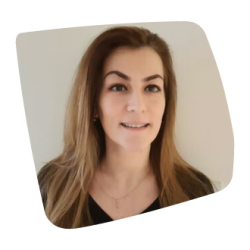
Ana Cvejic
Professor, University of Copenhagen
Ana Cvejic is a Professor at the University of Copenhagen and a Group leader at the Biotech Research and Innovation Centre (BRIC), Denmark. In 2008 Ana received her PhD in Biochemistry at the University of Bristol. She then moved to the University of Cambridge/Wellcome Trust Sanger Institute to start a Postdoctoral Fellowship, with Professor Willem Ouwehand. In 2012 Ana was awarded the CRUK Career Development Fellowship to start her independent group at the University of Cambridge. In 2015 Ana was awarded ERC Starting Grant and in 2016 EMBO Young Investigator award. In 2022 Ana was a recipient of the ERC Consolidator Grant and she moved her group to the University of Copenhagen. With the principal expertise and research interest in the molecular regulation of blood stem cell fate choices Ana’s research sits at the intersection of molecular biology, genetics and systems biology and it closely couples experimental approaches and “big” biological data analysis.
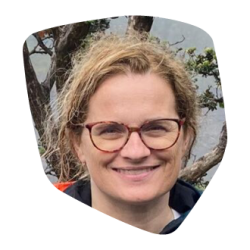
Ana Jesus
Horizon Europe project SEMACRET
Made her studies in Lisbon University, having specialized in an interface area between metallogeny, the study of processes that form mineralizations, and igneous petrology, the study of magmatic processes. Worked as Invited Professor in mineralogy in the Faculty of Science of Lisbon and as a consultant to the Mineral Exploration Industry for Angola. In 2013, moved with her family to the Sultanate of Oman in the middle East and became Assistant Professor in the German University of Technology in Oman, affiliated to Aachen University. She integrated the team of the Oman Drilling Project, of the International Continental Drilling Program that performed scientific drilling of the Samail Ophiolite, the largest portion of oceanic crust and mantle transported to land. She then resumed research activity and was awarded a Reintegration Marie-Slodowska Curie to study sulfur and metal cycling in the oceanic crust. Since then she is a researcher in Horizon Europe project SEMACRET that aims at developing methods for sustainable exploration of critical raw materials.
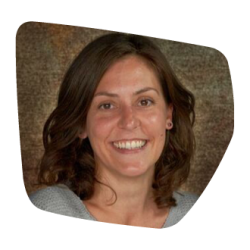
Andrea Hutterer
Research Programme Administrator, Research Executive Agency
Andrea Hutterer has been\nworking as research programme manager at the European Research Executive Agency (REA) since 2019. She studied biochemistry and holds a PhD in Life Sciences from the University of Vienna, Austria. She worked as a researcher at the University of Cambridge, UK, from 2006-2010 funded by an EMBO and HFSP fellowship. In 2010 Andrea changed from active research to research administration and management. Following a brief stint at the Medical Research Council Headquarters, UK, she became the Manager\nof the prestigious EMBO Fellowship programme in 2011. 5 years later she moved to the Institut Curie Research Centre, Paris, France, as coordinator of its\nresearch core facilities. In 2018 she joined the European Commission as scientific officer at the European Research Council Executive Agency (ERCEA).
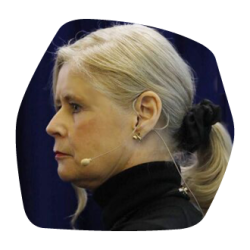
Anna Maria Fleetwood
Swedish Research Council
Anna Maria Fleetwood has almost two decades’ experience of science communication. Her assignment includes contacts and networking with various constellations and bodies within the EU and globally. These include established networks between politicians, businesses, other government agencies, non-profit organisations/NGOs, as well as CSOs, media and the public, aimed at building long-term acceptance and understanding of higher education and research. Furthermore, to enhance evidence-based decisions, both for society at large, decisions makers and for politicians. Anna Maria lectures on science communication, and has initiated a number of successful projects, among them “Forum for Science Communication”, which is the largest conference in Scandinavia on this subject, with over 400 participants and international experts as speakers. She is a trained art historian and has a background as an arts critic. She has written for Swedish and international periodicals, and worked as a lecturer.
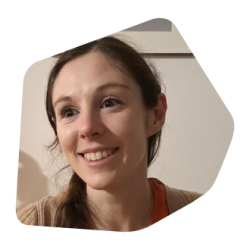
Anouk Lafortune
Policy officer, Marie Skłodowska-Curie Actions
Anouk Lafortune is a policy officer in the Marie Skłodowska-Curie Actions (MSCA) unit, in the Directorate General for Education, Youth, Sport and Culture at the European Commission. She notably works on the MSCA Postdoctoral Fellowship action, and on more horizontal topics for the programme, including academia-business cooperation, research assessment and the end-of-fellowships surveys. Before joining the Commission, she was an early-career researcher and holds a doctoral degree in social sciences from Durham University.

Antonino Puglisi
Research scientist
Antonino Puglisi is a London-based research scientist. After his Masters and PhD in chemistry in his native Italy, he has had extensive international experience as a researcher in different countries including Italy, the UK, Turkey and Austria. He is also an active member of the Marie Curie Alumni Association particularly in its science policy working group

Brian Cahill
Grant Manager, COST Action CA19117
Dr Brian Cahill works in the Learning and Skills Analytics Lab of the Leibniz Information Centre for Science and Technology in Hannover as Grant Manager of the COST Action CA19117 on Researcher Mental Health. He is a Member of the Governing Board of EuroScience and was Chair of the Marie Curie Alumni Association from March 2016 to February 2018. In these roles, he engaged with early-career researchers on topics ranging from researcher career development, innovation, research funding, science communication, science policy, researcher pensions, research integrity, responsible research and innovation and many more. He has written a career column for Nature and been invited to speak at many career-related events, including the EuroScience Open Forum, the AAAS Meeting and the Vitae Researcher Career Development Conference.
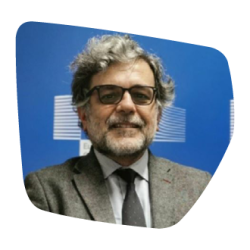
Carlos Morais Pires
Member of the cabinet of the Commissioner Mariya Gabriel
Member of the cabinet of the Commissioner Mariya Gabriel
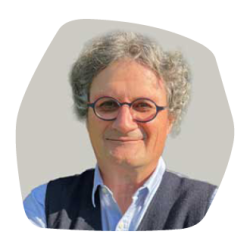
Carlos von Horst
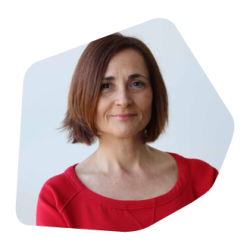
Carmen Mendez De Castro
Senior International Mobility Advisor
Carmen, Senior International Mobility Advisor, is the Head of Be Basque Dual Career Centre of Bizkaia Talent, as well as Euraxess Service Centre in the Basque Country (Spain) supporting researchers’ and other professionals’ mobility as well as their social integration. Apart from that, she promotes cooperation agreements for the regional settling and repatriation of talent in Industry & Academy sectors, as well as active speaker on Intersectoral mobility & Career Paths Beyond Academia in several national and international conferences; Expert member of the Book a Trainer program (EURAXESS), Member and Jury of European consortium of the accelerator of start-ups FABulous, active member of PWN Bilbao (International movement for the advancement of the professional career of women and gender equality in companies). She has also taken part in different papers and studies related to Brain Drain and Gain, Diversity, and Inclusion. Her main areas of interest include intercultural issues, international sociocultural integration, global talent, mobility and labour market issues for researchers and qualified personnel.
PhD student in Sociology and Political Sciences at the University of the Basque Country in topics related to transnational mobility, identity, analysis on Erasmus graduates’ style of life, among others); an ERASMUS Joint M. A. in European Leisure Studies (European Policy and Management in Culture, Media, Tourism, Recreation, Sport and Environment) from the Universities of Brussels, Tilburg, Loughborough and Deusto; Graduated in English Studies from the University of Deusto, Bilbao.Throughout her professional career, Carmen has managed and planned Higher Studies in Environmental Sciences, Industry Management, Administration and Tourism, a visitor lecturer on the Employee & Training Development at the University of Wolverhampton (UK), with a large experience in International & Institutional Relations with international universities (NL, UK, USA, Spain), companies and governments.

Castellano Pellicena
Project Officer Health Research Board
Irene is a Project Officer in the Health Research Board (HRB) and the National Contact Points for Cluster 1, Health in Horizon Europe in Ireland. She is also the chair of the Ireland Chapter of the Marie Curie Alumni Association and a member of the Research Funding Working group and Science Diplomacy Taskforce.
Irene is a biomedical scientist working in research funding management since 2020. During this time, she worked on enterprise facing programmes as well as in challenge funding for international development in Science Foundation Ireland. Previously, she was a biomedical researcher for over 8 years, where she worked in different countries and settings including industry and academia
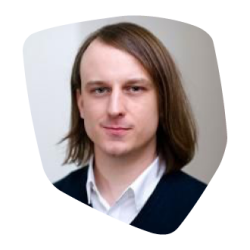
Christian Weber
Substitute professor, chair for medical computer science
Christian Weber is a substitute professor at the chair for medical computer science and a researcher with the Institute of Knowledge-Based Systems and Knowledge Management (KBS & KM), University of Siegen, Germany. He is continuously researching the exploitation of evolving knowledge maps for an ongoing industrial, educational and medical digitalization using AI and is active for that in national and international funded research projects (DFG, BMBF, H2020, Erasmus plus, and many more) but also direct industrial collaborations, as well as supporting the next push of tech-startups. He heads the OEduverse project and believes that any digital solution has to have a human factor and so does academia.

Clare Viney
CEO at CRAC-Vitae
Clare Viney took up the role of Chief Executive Officer of CRAC/Vitae in October 2016. A strategic leader with over 20 years' advocacy, policy and external affairs experience, Clare is a Chartered Scientist and Chemist with extensive experience in the science community and not-for-profit sector. She is passionate about investing in future generations and those from diverse backgrounds and experiences, empowering people to realise their potential and achieve their career and development goals.
Prior to her role at CRAC Clare was with the Royal Society of Chemistry for 16 years in a variety of roles in membership, fundraising, science policy, communications and latterly leading Membership and External Affairs. Her role ensured that the Royal Society of Chemistry remains the most influential voice for chemistry in the UK, Europe and beyond.
Clare has a BSc and MPhil in chemistry from the University of Sheffield and currently sits on the QAA Advisory Committee on Degree Awarding Powers, Technician Commitment Steering Board, Employability Board of the University of Sheffield and is Chair of the External Advisory Board of the Department of Chemistry of the University of Southampton. She is also a Director of ELRIG, a not-for-profit organisation serving the life science & drug discovery communities.
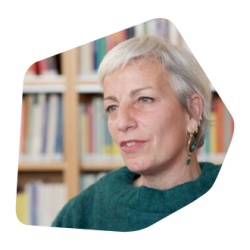
Claudia Padovani
Associate Professor, University of Padua (Italy)
Claudia Padovani is Associate Professor in Political Science and International Relations at the University of Padua (Italy). Claudia has been since 2019 one of the 3\nco-coordinators of the Scholars at Risk (SAR) national section in Italy, which now comprises 36 universities and research centres. She is delegate for SAR at the University of Padua, where she co-directs the Padua Students Advocacy Seminar, co-chairs the SAR Italy Working Group on Advocacy, and is the SAR Italy representative in the European Coordinating Committee for Academic Freedom Advocacy.
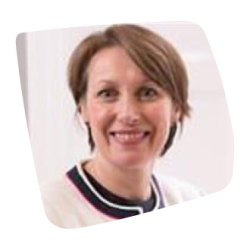
Cliona O'Sallivan
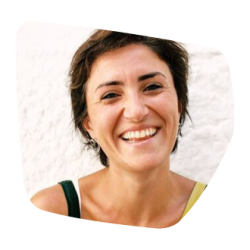
Donata Iandolo
Board member, Marie Curie Alumni Association
Dr Donata IANDOLO is a permanent researcher within the INSERM (France). Her major research interests lie at the interface between bioelectronics and tissue engineering.
She is part of the MCAA board where she takes care of the partnership activities. She is also curating the launch of the MCAA Academy, the mentoring program of MCAA.
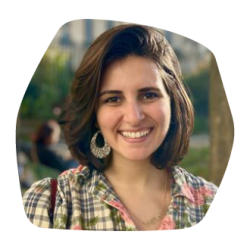
Dureen Samanadar Eweis
Science Officer, International Science Council
Dureen Samandar Eweis is a Science Officer at the International Science Council, part of the Centre for Science Futures which works to improve our understanding of current and upcoming issues relating to science futures, science systems, and policy for science.
Her curiosity about understanding living things led her to do a PhD in developmental cell biology at Institut Curie in Paris. She has been an active member in student representative organizations in different countries.
Following her PhD, she carried out a Bluebook traineeship in the Scientific Advice Mechanism in DG Research and Innovation of the European Commission to launch her career transition into science-policy. She is an MCAA fellow and an active member of the MCAA Policy Working Group.
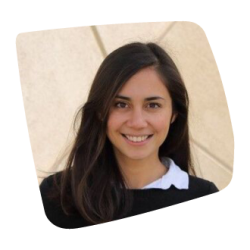
Eleonora Viezzer
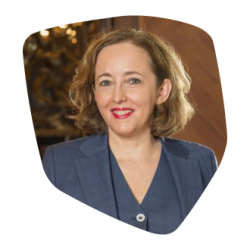
Eloísa del Pino Matute
President, CSIC
Eloísa del Pino Matute ha sido nombrada presidenta de la Agencia Estatal Consejo Superior de Investigaciones Científicas (CSIC) por acuerdo del Consejo de Ministros el 21 de junio de 2022. Investigadora del CSIC. Doctora en Ciencia Política. Ha sido investigadora visitante en la Universidad de Oxford, 201617; el Centre d’Études et de Recherche sur la Vie Locale (CERVL) del Institut d' Etudes Politiques/CNRS, Burdeos; la School of Social Policy and Social Research, Universida d de Kent; School of Political Studies, Universidad de Ottawa; y profesora invitada en la Pontificia Universidad Católica del Ecuador. Sus áreas de investigación son la reforma de las política la reforma comparada de la administración y la gestión pública, s sociales y el Estado de Bienestar. Fue Subdirectora de Análisis Institucional, División de Evaluación de Gasto Público de la AIReF. Dirigió el Observatorio de Calidad de los Servicios en la Agencia de Evaluación de las Políticas y Calidad de los Servici os (AEVAL), Ministerio de Política Territorial (2009Gabinete de la Ministra de Sanidad, Consumo y Bienestar Social (2018 Gestión y Análisis de Políticas Públicas (GAPP) del INAP. 2011). Fue Directora del 2020). Dirige la Revista Gestión y Análisis de Políticas Públicas (GAPP) del INAP.
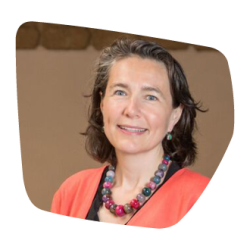
Emannuella Gardan
Director, Coimbra Group
Emmanuelle Gardan leads the Brussels Office of the Coimbra Group association of Universities since January 2020. She has gained a wealth of experience in international academic cooperation over the past two decades. She previously worked as head of sector for higher education and research at the Union for the Mediterranean (2013-2019), helping shaping intergovernmental policy dialogues and large-scale cooperation projects across the two rims of the Mediterranean.\nBefore that she was employed at the Erasmus+ French National Agency (2002-2011), holding various positions as that of the Erasmus Mundus national contact point. She was also involved in enhancing university-business cooperation atnational and international level. (2011-2013) She graduated in France in political science and specialised in European public policy.
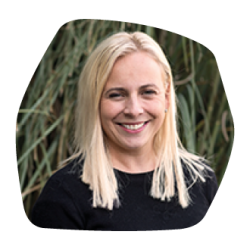
Emma Day
Project Manager, Every Researcher Counts programme
Emma Day is Project Manager for the Every Researcher Counts programme, a project to improve equality and diversity for research staff within the higher education sector. Emma has worked as a project manager for both Vitae and CRAC: The Career Development Organisation for over 10 years in which she has managed a wide range of projects, including initiatives to improve career development with schools, outreach programmes with the National Trust and icould, an online careers resource. More recently she has been Programme Manager for Vitae Events including the National GRADschools programme.
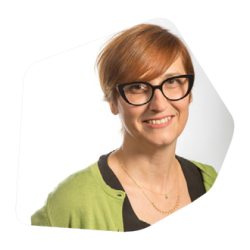
Ester Asin
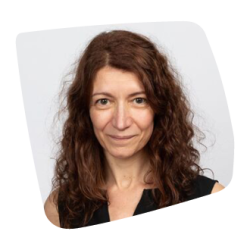
Fernanda Bajanca
Chair, Marie Curie Alumni Association
Fernanda is the elected Chair of the Marie Curie Alumni Association. Previously, she held the Vice-Chair position of the MCAA Executive Committee (2020-2022) and was the Chair of the MCAA Policy WG (2017-2019). She has also been a member of the MSCA Advisory Group (2017-2020) and currently co-chairs the EU Science Diplomacy Alliance.
Professionally, Fernanda accumulates over two decades of international, interdisciplinary and intersectoral research activity. She holds a PhD in Developmental Biology and was later awarded an MSCA Individual Fellowship grant for pursuing her career on the frontiers of fundamental and applied research. She is currently responsible for managing clinical research on a rare disease at a children’s hospital in France.
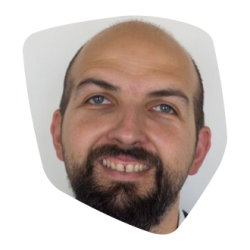
Gabor Kismihok
Head, Learning and Skill Analytics Research Group
Gábor is the head of the Learning and Skill Analytics Research Group at the TIB – Leibniz Information Centre for Science and Technology in Hannover, Germany. He has been concentrating his research efforts on the multi-disciplinary area of matching processes between education, labour market, and individuals. He was elected as the chair of the Researcher Mental Health Observatory (ReMO) COST Action (250+ members from 41 countries). Previously, he chaired the Career Development and the Research Funding Working Groups of the Marie Curie Alumni Association (MCAA).
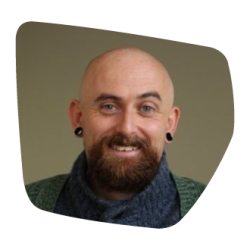
Gareth O'Neill
Principal consultant, Open Science at Technopolis Group
Principal consultant on Open Science at Technopolis Group. Policy and strategy leader at EOSC Future project. Ambassador for Open Access and Plan S at cOAlition S. Doctoral candidate in linguistics at Leiden University. Adviser at TORCH project for CHARM-EU alliance. Adviser at DIOSI project. Honorary member at Marie Curie Alumni Association. Former adviser at EOSC Association for EOSCsecretariat.eu project. Former adviser at EOSC Executive Board for EOSCsecretariat.eu project. Former adviser at FOSTER+ project. Former president of European Council of Doctoral Candidates and Junior Researchers (Eurodoc). Expert on Open Science and Research and Innovation. Irishman living and working in Amsterdam and Brussels.
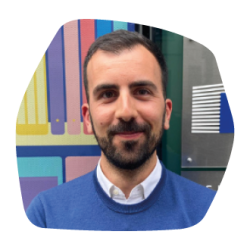
Gerard Bros Perez
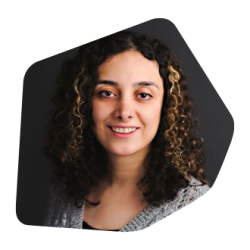
Ghazal Gheshnizjani
Research Associate professor, University of Waterloo
I was born and raised in the historic city of Isfahan, Iran. I obtained my BSc’s degree from Sharif university, Iran in 1999 and my PhD in physics from Brown University, US in 2005, followed by postdoctoral fellowships at University of Wisconsin-Madison, Perimeter Institute for theoretical physics and a research scientist at University at Buffalo. I am currently a Research Associate professor in the Department of Applied Mathematics and a founding faculty in the Waterloo Centre for Astrophysics at University of Waterloo, Canada as well as visiting fellow at Perimeter Institute.
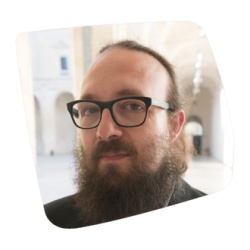
Gian Maria Greco
Board member, Marie Curie Alumni Association
Gian Maria Greco is tenure track Senior Research Fellow at the University of Macerata (Italy). He specialises in foundational and applied issues in accessibility studies and translation studies. He holds a PhD in Philosophy and a PhD in Translation Studies. He held several university positions, including Junior Research Associate (University of Oxford), Ulam Research Fellow (University of Warsaw), and Marie Sklodowska-Curie Fellow (Autonomous University of Barcelona). He complements his research expertise with an extensive experience as a consultant on accessibility, diversity, inclusion, multilingualism, and science communication for public institutions and private organisations. Within the Marie Curie Alumni Association (MCAA), he is a member of the general MCAA Board. He is also a member of the Communication Working Group (WG) Board, the Genders, Equity, Diversity and Inclusion WG, and the Policy WG. He was editor-in-chief of the MCAA Newsletter (ISSN 2663-9483) and IRRADIUM magazine (ISSN 2707-7071) for over four years. Currently, he co-leads ResearchAbility, a multi-organisation initiative for researchers with disabilities coordinated by the MCAA.
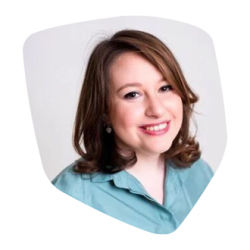
Giulia Malaguarnera
Secretary, Marie Curie Alumni Association
Giulia Malaguarnera is a Researcher with experience in academia, industry, and policy. She is PhD in Neuropharmacology, worked at the University of Catania, University College London, and in France with the MSCA-IF (H2020) in a startup company. She is currently the Secretary of MCAA, former President of Eurodoc and member in MCAA policy WG with a strong focus on Open Science, Research Assessment, and communication. Giulia works in OpenAIRE as outreach and engagement officer, loading with all actors in the Open Science ecosystem to enable them to practice Open Science.
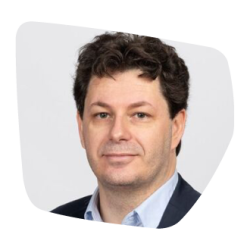
Gledson Emidio
Vice chair, Marie Curie Alumni Association

Hakim Ferria
European Projects Manager, INSAVALOR
Hakim Ferria works as a European Projects Manager at INSAVALOR, which is the subsidiary for R&D of the engineering school INSA in France. He obtained his doctoral degree in fluid mechanics in 2011 from both ECL, École Centrale de Lyon, France, and KTH, the Royal Institute of Technology in Stockholm, Sweden. He worked within the space industries and governmental institutions on fluid-structure interaction in turbines. He is now fully involved in research projects management. He was the project manager of the ITN INFRASTAR. Besides his position at INSAVALOR, he coordinates a network of French European Project Managers of ITN/DN projects coordinated in France. He co-founded the research management working group of which he is now one of the vice-chairs.
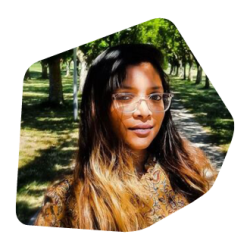
Harihar Jaishree Subrahmaniam
Individual fellow, Aarhus University, Denmark
Jaishree is a MSCA Individual fellow working at Aarhus University, Denmark, where she uses multi-disciplinary approaches to understand plant communication and cooperation patterns. Being a first generation academic, she has been an active supporter for children and women education through working with various NGOs. She was a part of the pilot science policy mission for advancing gender equity in STEM education by the Govt. of India.
Along with being an active researcher, she translates her research on altruism and cooperation into her work beyond academic research. She founded PAKSH - a mental health support initiative for academics across the world. She is also a mentor for South Asian girls under the Lotus STEMM Mentorship programme to guide them in a career in science. She also serves as the guest advisor for Open Research Europe (European Commission).
At the Marie Curie Alumni Association, she chairs the Policy working group and represents MCAA as an external policy advisor for Initiative for Science in Europe.
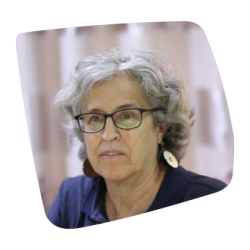
Helena Gomez Macpherson
Agriculture Engineer (Córdoba University, Spain)
Agriculture Engineer (Córdoba University, Spain) and PhD in Crop Ecophysiology (ANU, Australia), she conducts participatory research to develop more productive and sustainable cereals-based systems. She focusses on conservation agriculture systems in southern Spain and on irrigated agriculture production and food security in the Sahel. She is researcher and Chief Agronomy Department at IAS-CSIC (Spain), and Water for Food Institute Global Fellow (Nebraska, USA). She has been FAO Agriculture Officer, member of the GAFSP Technical Advisory Committee, and expert coordinator of the EU EIP-AGRI Focus Group “Water and Agriculture”. She coordinates CSIC PTI+HorizonteVerde, an interdisciplinary platform to facilitate addressing complex challenges and the delivery of solutions.
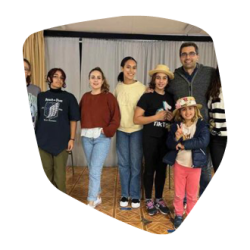
High school students Tenerife
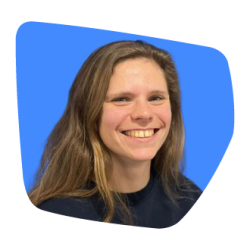
Irene Arrata
Project Manager, ITN Consortium CHAIR
Born and bred in Paris, Irene left the big city in 2010 for greener pastures and an attempt at an academic career. After graduating from a M.Sc. in Organic Chemistry from the University of Strasbourg (France) in 2013 and a PhD in Chemical Biology from the University of Leeds (U.K.) in 2017, she realised research wasn’t her thing. She moved on to join Driad, a consultancy supporting innovative and deep-tech start-ups in accessing public funding – where she first encountered European Projects. After almost 2 years, she moved back to Strasbourg and carried on as a freelancer, working in collaboration with French and British consultancies. At the end of 2020, Irene returned to academia by joining the ITN Consortium \"CHAIR\" as the Project Manager. She’s now part-time project manager, part-time consultant, and part-time dog-mum.
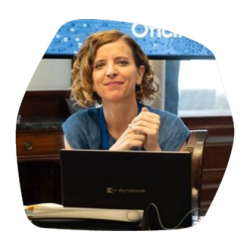
Izaskun Lacunza
International Projects Unit, Spanish Foundation for Science and Technology
Dr Izaskun Lacunza is a science policy practitioner running the International Projects Unit at the Spanish Foundation for Science and Technology (FECYT). She is focused on bringing science beyond the frontiers of academia and supporting researchers towards meaningful and diverse careers.
She is the coordinator of the Science and Technology Office of the Congress of Deputies, working on providing with scientific evidence on relevant topics to Members of Parliament in order to support science informed policy making.
On the other hand, she coordinates FECYT´s participation in EURAXESS and European related projects in order to create the conditions for researchers to fully develop their potential and to have open, diverse, intersectoral, international and interdisciplinary career paths in an open science framework. She holds PhD in Chemistry.
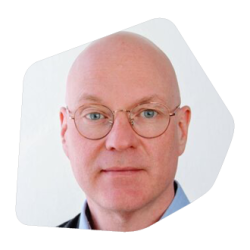
Janne Pölönen
Secretary General, Publication Forum at the Federation of Finnish Learned Societies
Janne Pölönen works as the Secretary General of Publication Forum at the Federation of Finnish Learned Societies. Since 2010, he has developed a community-curated national list of peer-reviewed journals and book publishers, which supports the performance-based research funding system of Finnish universities. Lic.Phil. in history, specialising in ancient Roman law and society research, his recent work is in the fields of research evaluation, bibliometrics, scholarly communication, open science and learned societies. He participates in EU-funded projects on Diamond Open Access publishing standards (DIAMAS) and infrastructures (CRAFT-OA), and open research assessment dataspace (GraspOS). His policy work includes EOSC Task-force on Research Careers, Recognition, and Credit, the National recommendation for the responsible evaluation of a researcher in Finland, and the Helsinki Initiative on Multilingualism in Scholarly Communication.
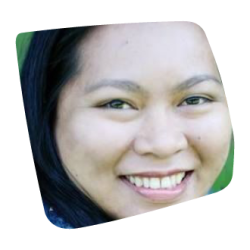
Jenny Lind Elmaco
Chair, Marie Curie Alumni Association in Southeast Asia
Dr. Jenny Lind Elmaco is the current Chair of the Marie Curie Alumni Association in Southeast Asia. She was awarded the Double Gold in Education & Global Diamond Award in Innovation from the Global Women Inventors and Innovators Network and the MCAA Social Impact Award for her work in peace, gender, digital inclusion and COVID response. Jenny has been very active in science diplomacy, security and international development work. She is on the United Nations Standing Committee for the International Federation for Business and Professional Women which she represents as an official delegate to the United Nations Council for the Status of Women meetings in New York. She is a Regional Representative of EURAXESS Worldwide and she is also an NCP for the EU programs: Marie Sklodowska Curie Actions, European Research Council and Research Infrastructures.
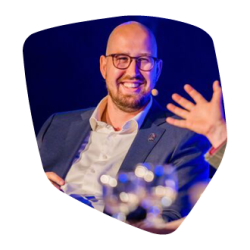
Jeroen van Lent
Board Member, Lead Partnerships & Identity
Graduated from the EIT Digital Master School, Jeroen van Lent is now part of the EIT Alumni Board and responsible for Partnerships & Identity. He has been a part of various industry leading companies and NGO’s enabling Digital Transformation in Higher Education and Erasmus+ and is now working on the roll out of the European Student Card. Jeroen has a passion for bringing people together and has been involved in numerous Executive Boards ranging from the EIT Digital Alumni to the Erasmus Student Network. The firm belief in working across sectors, generations and backgrounds to improve society, makes the topic of inclusion and equality very interesting for him.
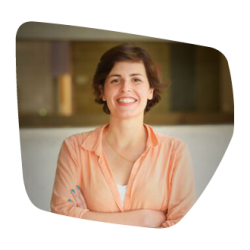
Joana Moscoso
Co-founder and director of Native Scientist
Joana believes in science and innovation for the benefit of humankind. This is what led her to become a scientist and a social business innovator. Joana is the co-founder and director of Native Scientist, an award-winning European-wide non-profit organisation that connects children and scientists to promote science literacy and reduce inequalities. She is also the co-founder and an advisor at Chaperone, the world’s first online marketplace for scientists to access high-quality and personalised career support. She has experience in working in the public, private, and third sectors. For 10 years she studied how bacteria cause infections, holding a PhD from Imperial College London (UK, 2013) and a Marie Skłodowska-Curie Individual Fellowship (Portugal, 2016-2018). She is the author of 10+ international peer-reviewed publications and founded Native Scientist while doing her PhD. She was also in the executive boards of two professional associations, the i3S Postdoctoral Association (Portugal, 2017) and the Association of Portuguese Researchers and Students in the UK (UK, 2012-2014), where she implemented the Ambassadors Programme and the Xperience Fellowships. Joana’s entrepreneurial and science outreach work has been distinguished multiple times and she holds the titles of Top 100 Women in Social Enterprise (2021) and MIT Innovator Under 35 (2017). Joana loves spending time with her family, friends and food. She dreams of having her own restaurant one day. More information here: https://www.linkedin.com/in/joanamoscoso/.
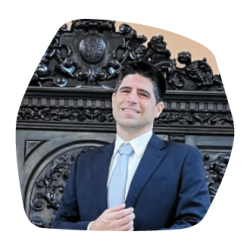
Joaquin Capablo Sese
Coordinator of a Marie Skłodowska-Curie Programme (Iberus Experience)
Joaquín studied chemical engineering at the University of Zaragoza, with an Erasmus experience in Germany and an internship at Bosch. With a PhD in Fluid Mechanics at LIFTEC (a CSIC’s Research Center), several stays (CHEC-DTU, IREC, FURV) and some teaching experience (for example as FPU Fellow from Spanish Government), his research field includes thermal, fluid and chemical technologies.
After his PhD, Joaquín was awarded a 2-years Marie Skłodowska-Curie fellowship as Experienced Researcher in Italy on an IAPP project (Green Kitchen) involving a company (Whirlpool) and 3 Universities in 3 countries (SUPSI, Polimi and Univ. Wroclaw). Afterwards, Joaquín was recruited by the Bosch Group for its Heat Pump Competence Center in Esquiroz.
He is currently working for Campus Iberus, a Consortium of International Excellence of 4 Universities in Spain, as coordinator of a Marie Skłodowska-Curie Programme (Iberus Experience) for postdoctoral researchers. Furthermore, since 2020 he is the Chair of the Spain-Portugal Chapter of the Marie Curie Alumni Association.

Joel Hanisek
Policy & Programme Manager, Scholars at Risk Europe
Dr. Joel Hanisek is Policy & Programme Manager for Scholars at Risk Europe, where he manages the EU-funded Inspireurope project and supports the activities of SAR sections across Europe. He has a background in NGO advocacy at the United Nations Economic and Social Council, and was previously also a member of the New York-based NGO Working Group on the Security Council. He holds a Ph.D. from Trinity College Dublin where he researched socio-religious aspects of memory and mobility in Iran-U.S. transcultural contexts. His research is currently organised around historic formations of higher education values in international exchange.
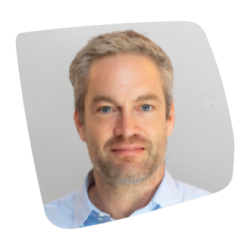
Jonas Krebs
Centre for Genomic Regulation
Jonas Krebs is scientific project manager and coordinator of the projects area in the “Strategy and Funding” office at Centre for Genomic Regulation (CRG) in Barcelona. Since his PhD in plant molecular biology, which he received in 2010 from the University of Potsdam, Germany, he worked in different institutions and roles in the field of project development, research management, internationalization and professional networking. In 2014 he specialized on European research funding and received the certificate “EU-Liaison officer” of the German Federal Ministry of Education and Research. Since 2015 Jonas develops and manages EU projects at CRG, with a major focus on Marie Skłodowska Curie Actions. Jonas is an active member of the Marie Curie Alumni Association (MCAA) and co-founder and current chair of its Research Management Working Group.
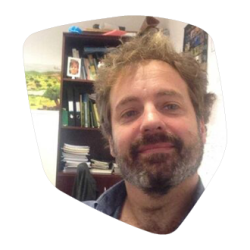
Jose Luis Quero
Director General of International Relations, University of Cordoba
Jose Luis Quero is assistant professor on Forest Ecology. His research focuses on studying ecosystems with a multi scale approach, from leaf to ecosystem. He is head of the international projects office at UCO.

Josiane Nikiema
Professor, École de technologie supérieure
Josiane Nikiema is an expert in the field of environmental science. She is a Process Engineer, with a PhD in Chemical Engineering applied to environmental protection from Université de Sherbrooke, Canada. Currently a professor at “École de Technologie Supérieure” in Montreal (Canada), she develops technologies for enhanced organic solid waste recycling. Between 2011 and 2022, she worked at the International Water Management Institute (IWMI), where she led the research group on ‘circular economy and water pollution’ issues, to address the global mission of “promoting sustainable and inclusive growth under changing natural resource flows and capital, driven by increasing urbanization, agricultural intensification, and climate change”.
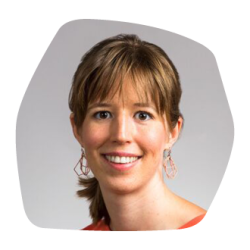
Karen Stroobants
Vice-Chair, Coalition for Advancing Research Assessment (COARA)
Karen is a policy adviser on research landscape & economy for the Royal Society of Chemistry, UK, and a director of research culture consultancy Culture Base Consulting. Recently, she was elected as Vice-Chair of the Coalition for Advancing Research Assessment and she is a Governing Board Member for EuroScience. Karen has contributed to the drafting of a European agreement on reforming research assessment together with DG-RTD, Science Europe and EUA and led the development of the Royal Society's Resumé for Researchers. She is a chemist by training and holds a PhD in inorganic chemistry from KU Leuven, Belgium. Karen served on the MCAA board from 2020-2022, prior to which she was a Vice-Chair of the policy working group.
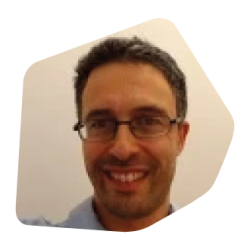
Keith Hyams
University of Warwick
I am a political theorist with an interest in democratic design, and in the use of methods from philosophical ethics to contribute to interdisciplinary research on global challenges. My research is animated by two questions:
What democratic innovations would allow us to better cope with the environmental, social, and technological challenges that humanity faces?
What does it mean, in theory and practice, to adapt to climate change, and to promote global development, in a way that is both ethical and just?
Ongoing research includes work on motivation in political theory, on ethics in adaptation to climate change, technology and democracy, pandemics, and Indigenous Peoples. My previous research focused on the philosophy of equality and fairness, particularly in respect of distributions of risk. I have also published on the ethics of consent, on carbon offsetting and carbon quotas, and on political authority. My research on justice and risk was awarded the Inaugural Sanders Prize in Political Philosophy in 2015.
My policy work includes advising a broad range of UK and international NGOs and government bodies, including the UK Cabinet Office. In 2020 I was awarded the International Society for Environmental Ethics Andrew Light Prize for Public Philosophy for policy engagement. I am a member of the Strategic Advisory Group for the UKRI Global Challenges Research Fund, and a member of the Expert Advisory Group on Safeguarding for the UK Collaborative on Development Research.
I have a BA in psychology and philosophy, and a BPhil and DPhil in philosophy (Oxford). Before joining Warwick in 2014, I was a Lecturer in Political Theory at the Universities of Exeter and Reading. I have held visiting positions at the University of Toronto, the University of Louvain, and the University of Oxford. Prior to becoming an academic I lived and worked with marginalised groups in various countries, including Rwanda, Guyana, India, Peru, Nigeria, Mexico, Indonesia, and the Middle East.
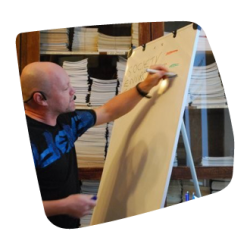
Keith R Skene
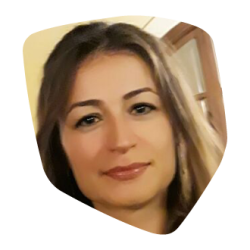
Keti Zeka
GOSH BRC Junior Faculty and Child Health Open Research Advisory Board
Dr Zeka received her PhD in “Chemical Processes and Biotechnology Innovation” from L’Aquila University, in Italy. During the course of her PhD research, she actively sought and set up international collaborations, with placements in Japan and at De Montfort University, Leicester, UK, which resulted in original and review publications.
At the end of her PhD, Keti followed her developing interest in regenerative medicine and cancer and had the initiative to join the world-renowned Gurdon laboratory on an Erasmus+ fellowship for six months.
Keti’s research at the University of Cambridge (UK) focused on the cross-talk between epigenetics and metabolism in Acute Myeloid Leukemia (AML). Her studies have been supported by prestigious personal fellowships such as the Italian Association for Cancer Research (AIRC, 2016-2017), the Marie Curie Individual Fellowship (2018-2020) and the Cambridge Philosophical Society Postdoctoral Fellowship (2020).
Since December 2020, Keti’s scientific curiosity has driven her postdoctoral journey to the Giustacchini Lab, at the UCL Zayed Centre for Research, to work on paediatric leukemic stem cells.
The importance of Keti’s project has been recognised through the prestigious award “Olivia Hodson Cancer Fund 2021”, a special purpose Fund within Great Ormond Street Hospital Children’s Charity and the UCL institute of Child Health. Furthermore, Keti is an active member of the Institute as she is part of the GOSH BRC Junior Faculty and Child Health Open Research Advisory Board.
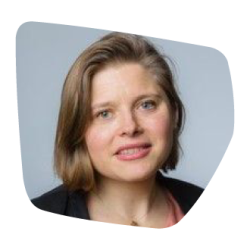
Lene Topp
European Commission (DG Joint Research Centre)
Lene Topp works at the European Commission (DG Joint Research Centre), where her work focuses on strengthening evidence-informed policy-making in the European Commission and beyond through training and other capacity building actions for researchers. She was project lead on the ‘Science4Policy’ Competence Framework, which is a mapping of the essential competences (knowledge, skills and attitudes) that are required for researchers to increase the policy impact of their research results. Lene Topp has contributed to the development of classroom, online and e-learning training courses targeting focusing on building capacities for researchers working at the interface between science and policy.
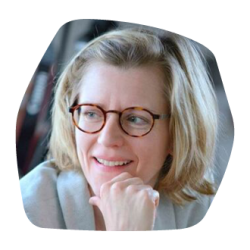
Lucy Swan
Marie Skłodowska-Curie Actions at the European Commission
Lucy Swan is the Deputy Head of the Unit in charge of the Marie Skłodowska-Curie Actions at the European Commission, which deals with the mobility and training of researchers and the development of excellent doctoral programmes. Before that, she was assistant to the Deputy Director General for Education, Culture, Youth and Sport. Since she joined the European Commission in 2004, she has worked in the Directorate General for Environment, the Secretariat General and the cabinet of Commission Vice-President Maroš Šefčovič.
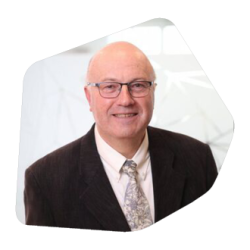
Mac Ferguson
Chairman of the European Innovation Council
Mark is Chairman of the European Innovation Council (EIC) Board. He was Director General of Science Foundation Ireland and Chief Scientific Adviser to the Government of Ireland. He was co-founder and CEO of the Biotechnology company Renovo developing novel pharmaceuticals to prevent scarring and accelerate healing, based on patented discoveries from his University research laboratory. He built the company from 2 to 200 employees, raised £32M in private equity, floated on the LSE raising £62.5M on IPO and licensed the lead drug in a US$825M deal. Following a negative phase 3 trial,he restructured the company to become Inspired Capital plc ,which was subsequently sold to the Tavistock Group. Previously Professor and Dean of Biological Sciences at The University of Manchester, Mark is the recipient of numerous international research prizes and awards including the 2002 European Science Prize (jointly),author of 329 papers and book chapters,61 patent families , author/editor of 8 books and supervised 77 PhD students with key discoveries of the molecular and cellular basis of scarring and temperature dependent sex determination in alligators. He has served on numerous international committees on research and innovation including Chair of the EIC pilot Advisory Board.
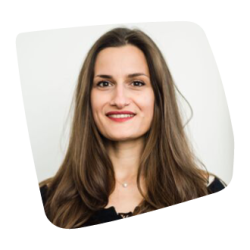
Magda Theodoridou
Newcastle University Academic Track Fellow
Magdalini Theodoridou is a Newcastle University Academic Track Fellow in the Hub for Biotechnology in the Built Environment and the School of Engineering, leading research on novel biotechnological processes and applications for sustainable building and smart heritage conservation. During her career as a researcher she has got funding from various programmes at national and international level and has been twice awarded MSCA felloships (IF and EST). She is a member of the Marie Curie Alumni Association and one of the founding members of the Genders, Equity, Diversity and Inclusion-GEDI Working Group (former GEMS), where she has also served as the Chair from 2018 to 2022. Her experience in leading interdisciplinary research, advocating for EDI, as well as having personally experienced the benefits and challenges of mobility have been valuable assets to bringing GEDI closer to its goals of promoting a responsible and ethical research environment.
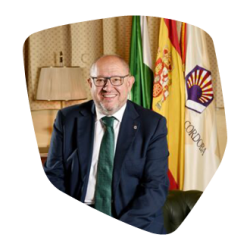
Manuel Torralbo Rodríguez
Rector of the University of Cordoba
Catedrático de Didáctica de la Matemática del Departamento de Matemáticas, está adscrito a la Facultad de Ciencias de la Educación de la Universidad de Córdoba. Manuel Torralbo es miembro del grupo de investigación “Didáctica de la Matemática. Pensamiento Numérico” (FQM-193), centrando su actividad investigadora en el análisis y evaluación de la Educación Matemática desde un enfoque interdisciplinar.
Cuenta con más de 50 publicaciones, con especial interés en un doble ámbito: abordando estudios curriculares en el área Matemática y, por otra, contribuyendo a la fundamentación de su didáctica como disciplina científica. En esta línea ha dirigido cinco proyectos de investigación y cuatro tesis doctorales. Cuenta con tres sexenios de investigación y uno de transferencia. Ha sido, así mismo, miembro y presidente de la Sociedad Andaluza de Educación Matemática ‘Thales’, Medalla de Andalucía en 2010.
En su vida profesional ha compaginado la actividad docente e investigadora con distintas responsabilidades de gestión en la Universidad de Córdoba. Así, ha sido secretario de la Escuela Universitaria de Formación del Profesorado de EGB, secretario general de la Universidad, vicerrector de Comunicación y Coordinación Institucional y vicerrector Coordinador del Equipo Rectoral y de las Relaciones con el Claustro. Manolo Torralbo ha desempeñado, asimismo, los cargos de vicepresidente de la Corporación Empresarial de la Universidad de Córdoba y del Parque Tecnológico Rabanales 21.
Por otra parte, dentro del sistema universitario andaluz, ha sido director general de Universidades y secretario general de Universidades, Investigación y Tecnología en la Junta de Andalucía. En este periodo, trabajó para la puesta en marcha de la bonificación del 99% de la matrícula de grado y máster, las ayudas al B1 o el Plan de Investigación PAIDI2020.
De igual modo, estuvo implicado en medidas para reforzar el sistema universitario con el acuerdo con la Mesa Sectorial de Negociación para la restitución de derechos del PDI y el PAS, la recuperación del complemento autonómico, el pago de los complementos de productividad o la homologación de las RPT.
A ello se suma, además, la apuesta por la figura de Ayudante Doctor para la estabilidad en la carrera académica o los acuerdos con el sistema sanitario (protocolo ‘María Castellano’) con los que garantizar el relevo generacional.
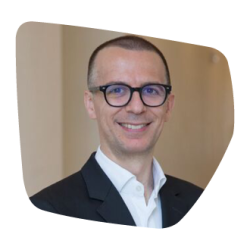
Marco Masia
Technology transfer manager, University of Vienna
Expert of Academic Entrepreneurship, Marco is technology transfer manager at the University of Vienna. He is also founder and managing director of MARMAS GmbH, a company working at the intersection between research, innovation, and policy. Earlier he worked as Executive Coordinator of the Initiative for Science in Europe, and as Assistant Professor of Theoretical Chemistry at the University of Sassari, Italy. He has also been board member of the Marie Curie Alumni Association. He holds a PhD in Physics (Polytechnic University of Catalonia, Spain) and an executive MBA (Frankfurt School for Finance & Management, Germany).

Marga Gual Soler
Founder of SciDipGLOBAL (EU science Dpiploacy Alliance)
Marga Gual Soler is an international expert in science diplomacy recognized as a Young Global Leader by the World Economic Forum. She is the founder of SciDipGLOBAL, a purpose-driven consultancy specialized in strategy, research, and training working with governments, universities, and international organizations to build bridges between science, technology, and global policy. She is a member of the 'Science in/for Diplomacy for Addressing Global Challenges' (S4D4C) project, an advisor to the EUHorizon 2020 Science Diplomacy Cluster, and an associate researcher in science diplomacy at the National Autonomous University of Mexico (UNAM). Previously she served as Senior Project Director at the Center for Science Diplomacy of the American Association for the Advancement of Science (AAAS) in Washington DC, and a high-level policy advisor to former European Commissioner for Research and Innovation, Carlos Moedas. She holds a PhD in Biomedical Sciences from the University of Queensland in Australia and was a Global Competitiveness Leadership Fellow at Georgetown University. In 2019 she participated in the largest-ever expedition of women in STEM to Antarctica.
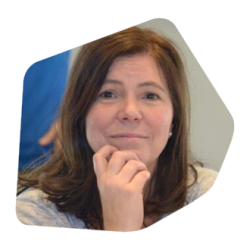
Maria Carvalho Dias
Programme Officer, European Research Executive Agency
Maria Carvalho Dias is a Research Programme Officer in the European Research Executive Agency in the service dealing with MSCA Postdoctoral Fellowships. Maria is currently dealing with a big portfolio of H2020 and Horizon Europe projects mainly in the area of Life Sciences and is also responsible for Communication, Dissemination and Exploitation matters. Maria has been working with EU research framework programmes since 1989. Many of those years were outside the European Commission, dealing directly with researchers and advising applicants. Since 1997 Maria has joined the European Commission and worked in different programmes such as Social Sciences and Humanities (the first time ever funded under a research Framework programme), Research Infrastructures (security and physics), Small and Medium Enterprises (SMEs) and MSCA. She has also worked in the Communication sector for some years.

Maria Goma
Uniwersytet Warszawski
Maria graduated from the interdisciplinary MISMaP programme at the University of Warsaw, combining biotechnology and chemistry. Next, she trained in structural biology during PhD studies at the University of Cambridge and a short research stay at SGC at the University of Oxford. Over the course of her postdoctoral work at CeMM in Vienna, she collaborated with systems, chemical and computational biologists and medical geneticists on a number of projects related to innate immunity, leukemia and some rare genetic conditions. In 2015, Maria returned to structural biology and Poland to help establish a protein crystallography laboratory at the newly opened BCRC and the Department of Chemistry. Her broad interest is in using three-dimensional structural models to explain protein function: e.g. the molecular mechanisms in RNA metabolism from viruses or bacteria to humans, or identifying the role of mutations underlying human diseases. She have also developed a passion for trying to translate my research findings into useful inventions through protein engineering and repurposing. Maria has worked with a local start-up to provide scientific support.
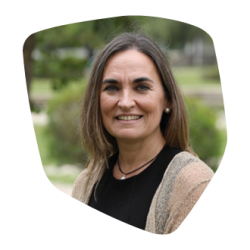
Maria Jose Polo Gomez
Prof. María-José Polo is the current Vicepresident of Scientific Policy in the University of Cordoba (UCO). Prof. Polo has\na degree in Agricultural Engineering (1992), with the second national prize of graduated students in that year. She joined UCO in 1999 as Associate Professor, being Full Professor of Hydraulic Engineering in UCO since 2016. Since 2006, she has developed different coordination, management, and decision-making roles in the university: member of the “Claustro” since 2006, General Secretary of UCO (2006-2010), Director of a MSc degree and Coordinator of a PhD (2006-2017), and Academic Coordinator of the International Campus of Excellence in Agrifood, ceiA3, integrated by five universities and chaired by UCO. She has also been carrying out advisory work in the Spanish Agency of Research-PIN area, as expert member of Hydraulic Engineering in the Civil Engineering and Arquitecture scientific subarea (2017-2021), scientific evaluator in a wide range of EU calls and panels (MSCA,\nH2020, ERC, among others), expert evaluator in the ACADEMIA-ANECA program, and in different committees of Spanish calls for funding of human resources in research, such as Juan de la Cierva, Ramón y Cajal, and FPU.
Prof. Polo has developed an academic career since she was a university student. She got a Bachelorship for the Introduction to Research and Teaching (1991-1993) by the Spanish Ministry of Education, and later a PhD Fellowship of the FPI Program (1994-1997). Her PhD work (1997) was awarded by national prizes, the Fundación Caja Madrid prize for Environment, the Fertiberia Prize to Research in Agriculture, and by UCO. After\na posdoc period in the IFAPA, she joined UCO in 1999 in the School of Agriculture and Forestry Engineering first, and also teaching in the Civil Engineering degree in the Politechnical School of Belmez, where she has been leading research in transport processes and water quality, and hydrology of\nMediterranean watersheds, with focus on processes, modelling, observation, and service development in water and natural resources management.
Prof. Polo funded and leads the research group of Fluvial Dynamics and Hydrology since 2009. She has been PI of\na large number of research projects funded by Spanish and Andalusian calls, and by different EU programs, and she has promoted innovation and research, with a large number of publications and impact results. She has also developed and\nintense work as supervisor of PhD and MSc students. In 2011, she was member of the Committee of Creation of the Andalusian Institute for Earth System Research, and interuniversity research institute, which chaired in UCO during 2011-2022. She has been member of different international networks and committees, and her career was recognized with the Dooge Medal- International Hydrology Prize 2022, by IAHS-UNESCO-WMO, being the first Spanish researcher with this distinction. Since 2022, she has joined by public call the\nInternational Task Force on Biodiversity of the European Geophysical Union as expert in hydrology and water resources.

Marta Gravela
Medieval History, University of Turin
Marta Gravela teaches Medieval History at the University of Turin, Italy. After receiving her PhD from the State University of Milan, she held postdoctoral positions at the Universities of Milan, Turin and the Ecole Normale Supérieure de Lyon. She was a visiting fellow at the Cambridge Group for the History of Population and Social Structure and the CIHAM UMR 5648 (Histoire, Archéologie, Littératures des mondes chrétiens et musulmans médiévaux). Her main research interests focus on the social and political history of the late Middle Ages, both in urban and rural contexts, with special reference to citizenship, family and kinship, fiscal systems, rural lordships, and communities. She is the Principal Investigator of the ERC Starting Grant DEMALPS. Democracies of the Alps. Issues, practices and ideals of politics in mountain communities, 1300-1500, which investigates forms of political participation in the communities of the Western Alps.

Martin Andler
President of the Initiative for Science in Europe (ISE)
He is Professor Emeritus at the Université de Versailles St-Quentin (Paris-Saclay). His main domains of research are Lie theory in mathematics, and in history the development of mathematics in France since 1870. A graduate of École normale supérieure in Paris, he obtained his PhD (doctorat d’État) from Université Paris-Diderot in 1983. He has held positions as a CNRS researcher, before joining Versailles-St-Quentin University. He has held visiting positions as professor at MIT, Rutgers, and as visitor at IAS-Princeton.
He was vice-president of the Société mathématique de France (1997-1999) and the founding president of Animath, the main mathematics outreach organisation in France (1998-2017).His interest in European policy issues led him to be Vice-President of Euroscience (2012-2018). Since 2017, he has been the President of the Initiative for Science in Europe. His web page (with link to his CV and list of publications) is here.
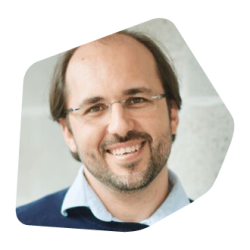
Mathias Schroijen
Member, Postgraduate Office at the Université Libre de Bruxelles
Mathias Schroijen is a member of the Postgraduate Office at the Université Libre de Bruxelles (ULB). As a project leader he is responsible for the development of transferable skills training programmes and career development services for researchers. Mathias has a research background in health psychology (respiratory psychophysiology) and, in parallel, has been actively involved in doctoral training with a specific interest in mental health, intersectoral mobility and social entrepreneurship. Driven by these interests, he focused on PhD community building at the local level (PhD Society at KU Leuven), the construction of training and career development services at the institutional level (project manager MSCA-Cofund IF@ULB) and the representation of early career researchers at the European level (Eurodoc).
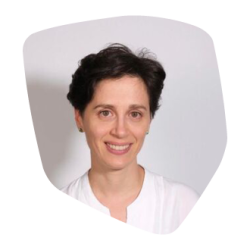
Mayya Sundukova
Researcher affiliated, Globally Distributed Open Research and Education (IGDORE)
Mayya Sundukova, is a researcher affiliated with the Institute for Globally Distributed Open Research and Education (IGDORE) and University of Extremadura (Spain), where she carries out her Master thesis in Narrative Therapy and Community Work. Mayya is also a resident fellow at the Open Life Science, developing projects on communication and coaching. Mayya's contributions include content developing and editing for NASA Transform to Open Science (TOPS) Training module, mentoring and facilitation in the Open Life Science training cohorts. Mayya mentors younger researchers pro bono in several mentoring programs such as Referent, ReBECA and others. Within the Researcher Mental Health Observatory (ReMO) COST network, Mayya coordinates a community project on developing policy briefs on mental health in academia. Previously, Mayya pursued interest for 10+ years in mechanisms of pain and touch, while a Marie Curie Cofund Postdoctoral Fellow at European Molecular Biology Laboratory (EMBL) and PhD in Neuroscience from SISSA (Italy).
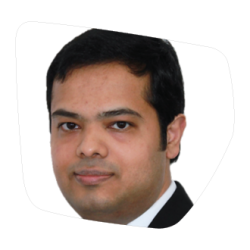
Mostafa Moonir Shawrav
Co-Chair, EU Science Diplomacy Alliance
Mostafa is the Co-Chair of the EU Science Diplomacy Alliance. He has over 14 years of scientific research and innovation experience in academia, business and nonprofit sector in Austria, the Netherlands and Belgium. After working over 10 years in an academic environment. he moved into the semiconductor industry & currently manages several European R&D Projects.
He is the former chair of Marie Curie Alumni Association (MCAA). His involvement in MCAA since its establishment helped him understand the challenges faced by researchers from different career stages and various scientific and geographical backgrounds. This inspired him to become active and organize training for mobile researchers in sustainable research careers, careers outside academia, science diplomacy and entrepreneurship. Over the past 4 years, he was involved in several policy initiatives. He worked as the high level expert on including the Knowledge Ecosystem study supporting the European Commission and contributed in the preparation of MSCA Supervision Guidelines.
In recognition of his efforts, he has been invited to organize sessions and speak at international events such as the Global Research Council, World Science Forum, European Open Science Forum, American Association for Advancement of Science, Science Business, EuroScience Policy Forum and Vitae Researcher Development Conference. He is a fellow of Royal Microscopical Society.
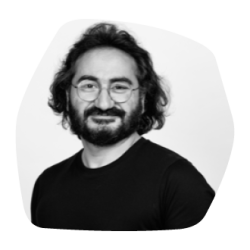
Murat Güneş
MSCA Techniospring COFUND Fellow, IMB-CNM
Murat Gunes graduated from METU with a Ph.D. in Micro- and Nanotechnology, Turkiye. He completed the Marie S. Curie Postdoctoral Fellowship at the University of Paris Sud, France. Thermoelectrics and magnetism, microfluidics, and materials and measurement sciences are among his research interests. Dr. Gunes founded two startups during his career involving technology transfer activities. Throughout his research career, he contributed to the publication of eleven articles in high-impact scientific journals. These articles were cited 288 times worldwide, and his Google Scholar H-index was 8. In addition, he has delivered several speeches and presentations at various international and national congresses and reviewed numerous international scientific publications. Gunes received several awards, instructed and supervised a number of master students. He volunteers as the Chair of the Bridging Business and Science Working Group (BSB-WG) at the Marie Curie Alumni Association (MCAA), where he was formerly Secretary of ExCom. He is also the STSMs coordinator of the Researchers Mental Health Observatory Cost Action project. Gunes was invited as a speaker such as the World Science Forum in Budapest, ESOF 2022 MSCA Satellite Event, MSCA-EID Cluster event. He was involved in several actions such as Net4Sugar, ResearchAbility, Phygital, and Food. He regularly organizes conferences, workshops, and mentors young researchers. Gunes is a supporter of gender equality and inclusion, science diplomacy, and science policy. Murat Gunes is an MSCA Techniospring COFUND Fellow in the GTQ team at IMB-CNM, Barcelona.
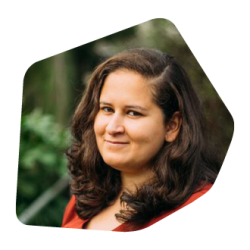
Nadia Metoui
Assistant Professor of Responsible AI, Data, and Digitalization
I am an Assistant Professor of Responsible AI, Data, and Digitalization at the Delft University of Technology in the Netherlands. My research revolves around the topics of “Diversity and Inclusion”, “Fairness and Justice”, and Privacy in the digital society. I am currently exploring the role of diverse teams, technology makers with disabilities, and pluridiciplinary collaborations in shaping responsible, inclusive and human-centred AI technologies. I have a background in computer engineering, I hold a Marie Curie-funded industrial doctorate in Data Security and Privacy, and I have several postdoctoral experiences working with multidisciplinary teams (with legal scholars, philosophers, social and political scientists etc.) on AI and datafication topics. I am the chair of the “Genders, Equity, Diversity & Inclusion” (GEDI) working group at the Marie Curie Alumni Association. With My team, I organise and facilitate events and actions to promote diversity and inclusion within research and academia and empower researchers irrespective of individual characteristics. I advocate for a better and fairer research environment to foster excellence and responsible research.
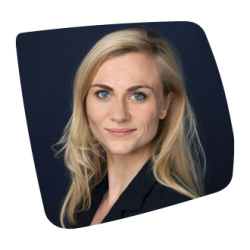
Nadine Bongaerts
Co-founder, Science Matters
Nadine Bongaerts is the co-founder of European science communication agency Science Matters. She studied biotechnology at the University of Leiden and TU Delft and obtained her Ph.D. in synthetic biology from the University Paris Descartes. For more than 10 years, she combined a career in science, (biotech) entrepreneurship and science communication. Nadine is passionate about developing powerful communication strategies and establishing strong connections between stakeholders to support science innovation.
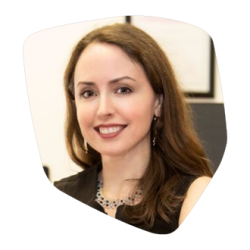
Nehama Levis
Associate Professor, University of Haifa
Nehama is an Associate Professor in the Department of Communication at the University of Haifa. She has been a board member of the Marie Curie Alumni Association (2018-2020), and was Chair of the Israeli MCAA chapter (2017-2018). Her research applies behavioral science to the design and evaluation of digital campaigns aimed at influencing health behavior and promoting public health objectives. Nehama is a member of the EQUALS-EU consortium, funded through Horizon 2020 (2020-2023), which promotes gender equity for women in research and technology.
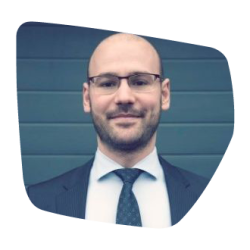
Nik Claesen
Managing Director, European Association of Research Managers and Administrators
Nik Claesen has been the Managing Director of the European Association of Research Managers and Administrators (EARMA) for over 5 years. With EARMA he works to improve the quality of research support throughout Europe by creating a network for professional development and best practice exchange. He is a Belgian national living in the greater Brussels area and passionate about research support. He has a background in research administration and more specifically in EU funded research for Brussels University (VUB) and bid consulting for Imperial College London. He is the main coordinator of the RM ROADMAP project funded by the EC to plot the future of research management in Europe (HEU, CSA, 01/09/2022-31/08/2025)\
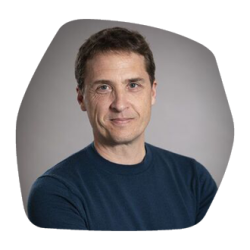
Olivier Dangles
Deputy Chief Science Officer, French Research Institute for Development
Olivier Dangles is Deputy Chief Science Officer in charge of Sustainability Science at the French Research Institute for Development. His research, firmly rooted in an interdisciplinary approach to sustainability science, focuses on the response of biodiversity to global changes, both in natural and man-influenced ecosystems, mainly in the tropical Andes. He has been an associate researcher in several foreign universities for 15 years (Ecuador, Bolivia, USA), and is currently based at the Centre for Functional and Evolutionary Ecology, where he co-directs an International Joint Laboratory between Ecuador, Colombia and France. His work has been the subject of more than 200 scientific publications, five books and numerous scientific communications. He has been involved in various international panels including the IPCC, the conference of Parties for Climate and Biodiversity, the International Council for Science and the ERA-Net Latin America and Caribbean of the European Union.
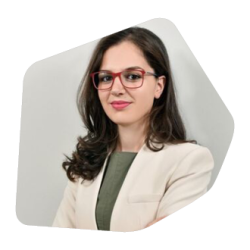
Ornela Bardhi
Data analyst and researcher, Success Clinic Oy
Ornela Bardhi is a real-world data analyst and researcher at Success Clinic Oy. Before rejoining SC, she was a scientific advisor to the Minister of Health and Social Protection of Albania through the LEAD Albania program. Previously, she was a Marie Curie Ph.D. fellow where she focused on the application of artificial intelligence in medicine, specifically on cancer. Ornela has conducted various scientific research in predictive analytics, object recognition, and image segmentation in cancer in Spain, the USA, the Republic of Ireland, and Finland. Before her Ph.D., she was part of the joint Erasmus+ master program in Pervasive Computing and Communication for Sustainable Development in France, Finland, Russia, and Sweden. During her masters, she founded and co-founded two startups in Sweden and Finland, respectively. She finished her BEng. in computer engineering in Albania and the UK. She is an active member of the Marie Curie Alumni Association, where she is the current chair of the MCAA Western Balkans Chapter. Ornela organizes events to promote scientific research and European grants in Albania and abroad. She holds various awards and has received various grants from the EU. Ornela has received various leadership training, one of them being the Emerging Leaders at John F. Kennedy School of Government Executive Education, Harvard University, USA.
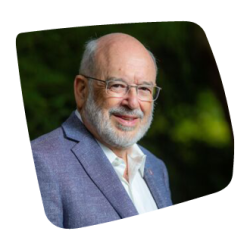
Peter Gluckman
President of the ISC
Sir Peter Gluckman is an internationally recognized biomedical scientist. He is currently the President of the International Science Council and heads Koi Tū: The Centre for Informed Futures at the University of Auckland. From 2009-2018 he was first Chief Science Advisor to the Prime Ministers of New Zealand and from 2012-2018 Science Envoy for the New Zealand Ministry of Foreign Affairs and Trade. He was foundation chair of the International Network of Government Science Advice (INGSA) from 2014-2021.
"He trained as a paediatrician and biomedical scientist, publishing over 700 papers and several academic and popular books in animal science, developmental physiology, growth and development and evolutionary biology and evolutionary medicine. A key theme of his research has been on understanding how a baby’s environment between conception and birth determines its childhood development and life-long health – and the impact that this knowledge has for individuals and whole populations. He co-chaired the WHO Commission on Ending Childhood Obesity (2013-2017). He is chief scientific officer of the Singapore Institute for Clinical Sciences.
Peter Gluckman has written and spoken extensively on science-policy, risk assessment, science-diplomacy, and science-society interactions. In 2016 he received the AAAS award in Science Diplomacy. He has received the highest civilian and scientific honours in New Zealand. He is a fellow of the Royal Society of London, of the Royal Society of New Zealand, a fellow of the Academy of Medical Sciences (UK) and a member of the National Academy of Medicine (USA). He holds a Distinguished University Professorship in the University of Auckland, New Zealand and honorary chairs at the University College London, University of Southampton and National University of Singapore.

Pooja Khurana
Stem Cell Scientist and Developmental Biologist
Driven by scientific curiosity, Pooja strives to utilize her academic and advocacy skills to enhance societal wellbeing while disentangling the nuances of cultural complexity.
An internationally accomplished Stem Cell Scientist and Developmental Biologist, Pooja has worked across multiple disciplines in scientifically diverse and culturally rich environments in India, Germany, Hungary and England where she attained her PhD. in Biological Sciences (University of Southampton) and was awarded the prestigious Marie Skłodowska-Curie Actions (MSCA) Fellowship.
Since concluding her postdoctoral research in the University of Hawaiʻi (USA) in 2022, she has explored alternative careers and volunteered for social causes including environmental sustainability at the Global Crisis Response (India) as an Outreach Coordinator and Research Associate; menstrual poverty and equity at The Pad Project (U.S.A) as a Public Health Ambassador; a Founding Member of a virtual peer-support group called Therapy Thursday (U.S.A) and research culture, diplomacy and open science at the Marie Curie Alumni Association (MCAA) as an Editorial Board Member.
Since her collaboration with the MCAA, she has Guest Edited the December 2022 Special Issue Newsletter focussing on ‘Mental Health in Academia’ and Career Development, published interviews on the MCAA Blog and contributed to the 2023 Irradium Magazine interviews exploring benefits and challenges of Doctoral Mobility under the MSCA and Erasmus+ programmes.
Pooja aspires to combine her scientific vigour and public outreach skills with a strong quest to attain menstrual equity, social wellbeing, and normalising mental and cultural complexity, for all.
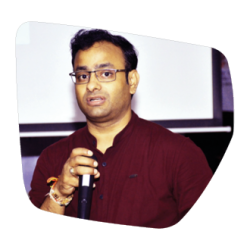
Praveen Kumar
Assistant Professor, Indian Association for the Cultivation of Sciences (IACS)
Dr Praveen is working as an Assistant Professor at the Indian Association for the Cultivation of Sciences (IACS), Kolkata. He did his PhD from the Department of Physics, Indian Institute of Technology, Delhi, followed by postdoctoral research at ISOM, UPM Madrid, Spain, as a Marie Curie Fellow. He is an Editorial Board of Materials Letters (Elsevier) and Nanotechnology (IOP) Journals. He is also a Chair of Career Development Working Group of Marie Curie Alumni Association (MCAA) and also served as a Chair of Indian Chapter (2017-2021). He is a member of The National Academy of Sciences (NASI), India and Indian National Young Academy of Sciences Academy of Sciences (NASI), India and Indian National Young Academy of Sciences, Fullbright Nehru Professional Excellence Fellowship 2022, MRSI Medal 2021, MCAA", Societal Impact Award (2019), DAE Young Achiever Award (2019), BRICS Young", Scientist Award (2017), INSPIRE Faculty Award (2014), Marie Curie Postdoctoral", Fellowship (2012), etc.
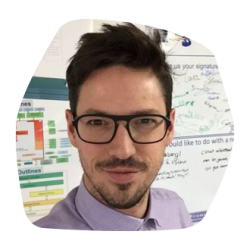
Renaud Jolivet
ERA Forum Representative Stakeholder Group 4
Professor Renaud Jolivet is Full Professor at the Maastricht Centre for Systems Biology, and Chair of Neural Engineering & Computation at Maastricht University. He is the nominated representative for individual researchers and innovators at the European Commission’s ERA Forum, and an elected member of the Board of Directors at the Organization for Computational Neuroscience. He is a member of the Science & Technology Committee of EBRAINS, the European research infrastructure for neurosciences, and is a 2023 Neurotech Fellow of the Foresight Institute. He also holds a courtesy appointment at CERN, the particle physics laboratory. He has previously served in the boards of the Initiative for Science in Europe and Marie Curie Alumni Association. He has worked in Switzerland, Japan, the Netherlands, and the UK. His work focusses on the brain’s heterocellularity and on neurotechnologies to interface with brain tissue.
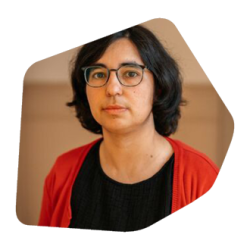
Rita Morais
Adviser, Research and Innovation at the European University Association
Rita Morais is Adviser for Research and Innovation at the European University Association. Rita has been mainly involved in the areas of Open Science and research assessment. Prior to joining EUA in 2013, Rita worked for different Brussels-based organisations in the field of education. She holds a PhD in Social Psychology from ISCTE-University Institute of Lisbon, Portugal.
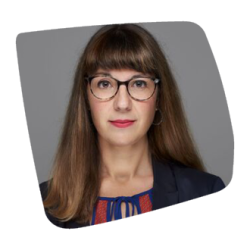
Rosa Arias
CEO, Science for Change
Rosa Arias, with an academic background in Chemical Engineering and an MSc in Energy, is the creator of the OdourCollect App and the CEO and founder of Science for Change, a knowledge based social enterprise whose mission is to bring science closer to society promoting collaborative research among quadruple helix actors through participatory methodologies and co-creation. Rosa coordinates the H2020 projects D-NOSES and NEWSERA, in odour pollution, citizen science and science communication, and will be co-coordinating the COALESCE project, to build up the European Competence Centre on Science Communication.She is also a member of the Board of Directors of the European Citizen Science Association (ECSA) and a technical advisor to the Spanish initiative \"Science in the Parliament\". She is passionate about the concept of Responsible Research and Innovation (RRI), citizen science and the role of women in science.
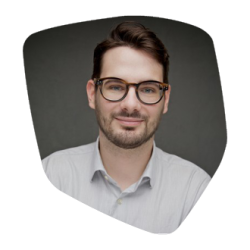
Ruben Riosa
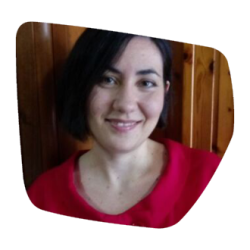
Sara Pilia
Gender Equality Officer Eurodoc
Sara Pilia, after a one-year high school study exchange in China (2006-2007), graduated in Chinese language and culture at Sapienza University (2015), where started a PhD in History and Institutions of\nContemporary China. At the same time, she got involved in advocacy and policy making in University and Research, with ADI and then Eurodoc. Her\nmain focus is gender equality and academic freedom. From 2019 to 2021 she coordinated the Eurodoc Equality WG, and in 2021 was elected Eurodoc Vice\nPresident. She is Eurodoc’s Head of delegation at the Conference of INGOs of Council of Europe, and Secretary of its Committee devoted to gender equality and women’s rights.\n\nShe dropped out of her PhD before defense. She works now as a “community builder”, empowering marginalised communities by building bridges between NGOs, public administration and academia.
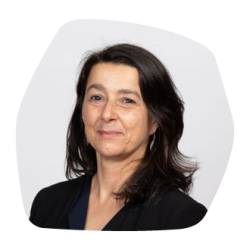
Sara Ricardo
SIRIS Academic
PhD in Cell and developmental Biology and Former Principal Investigator with extensive experience in Academia in leading institutions both in Europe and the USA; Marie Curie Alumni Association (MCAA) Board Member 2018-2022; Business Development experience in the healthtech industry sector. Currently, Consultant and Board member at SIRIS Academic, leading the development of, and consulting on, evidence-based strategic analysis in the Health and Life Sciences for the non for profit sector. Clients and collaborators include Universities, Research Organizations, Foundations, Governments and Governmental Agencies. Long standing interest in science, policy and contributing to the improvement of systemic issues; as well as, inside organizations, the understanding of the motivations and conditions that allow diverse profiles to contribute.
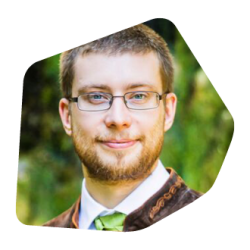
Sebastian Dahle
Vice President, European Council of Doctoral Candidates and Junior Researchers
Sebastian Dahle is Vice President of the European Council of Doctoral Candidates and Junior Researchers (Eurodoc). He works as a scientific associate and assistant professor at the Department of Wood Science and Technology, Biotechnical Faculty, University of Ljubljana. Further, he leads the Plasma Center at the Biotechnical Faculty, which was established in 2019. His research activities include applications of non-thermal plasmas for surface functionalization, enhanced coating performance, improvement of adhesion, multi-material composites and plasma deposition. A particular focus of his research lies with the use and improvement of bio-based materials and bio-based composites. Moreover, his research includes plasma applications for processing and cleaning various gases as well as the development of open plasma equipment.
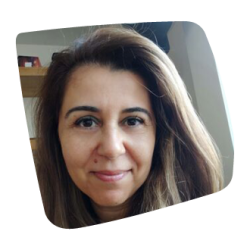
Senem Sanal Erginel
Policy officer, Marie Skłodowska-Curie Actions European Commission
Senem Sanal-Erginel is a policy officer at the Unit in charge of the Marie Skłodowska-Curie Actions at the European Commission. She is responsible for the coordination of relations with the Marie Curie Alumni Association. Previously, she was a lecturer and researcher at university. Her research focus is education which covers teacher education, parental involvement in education, and right to education among disadvantaged groups. As part of her career at the European Commission, she previously worked in Directorate General for Research and Innovation (RTD) focusing on small and medium enterprises, and in Directorate General for Education and Culture on school policy.
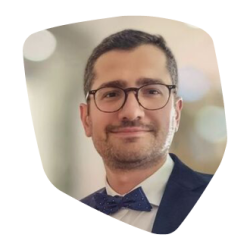
Slaven Misljncevic
Policy Officer, Directorate-General for Research and Innovation
Slaven Misljencevic works as Policy Officer in the Directorate-General for Research and Innovation of the European Commission, more specifically in the unit R&I Actors and Research Careers. He is responsible for several initiatives that contribute to the realisation of a European labour market for researchers, notably the development of RESAVER pan-European occupational pension fund, ERA Hubs, European Year of Youth and Euraxess. Moreover he is responsible for the ongoing work on tackling R&I Foreign Interference. Previously he worked as a product manager at AXA where he led the development of new employee benefit products and as a business manager at ADNEOM he was responsible for the management of engineering projects mostly in the field of green energy. Slaven obtained his master degree in Business Engineering at University of Antwerp and studies as well in China.
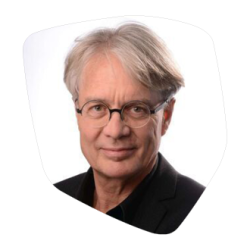
Stefan Kuhlmann
Professor at University of Twente
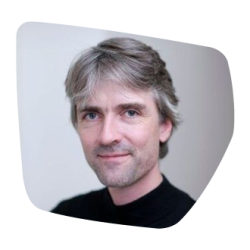
Stefan Mol
Assistant professor, University of Amsterdam
Stefan T. Mol is an assistant professor in Organizational Behavior and Research Methods at the Amsterdam Business School of the University of Amsterdam, co-founder of Sophia Medica BV, and co-founder and chair of the Scilink foundation. He received his Master's degree in psychology at the University of Amsterdam in 2000, and his PhD in psychology in 2007, at the Institute of Psychology of the Erasmus University Rotterdam. Stefan has co-authored over 25 peer-reviewed articles and book chapters on topics such as career shocks, refugee integration, learning analytics, text mining, recommendation of open educational resources, person-environment fit, and researcher mental health. In addition, Stefan is involved in a number of EU funded projects focused on optimizing the match between individual education and the labor market and researcher mental health. At MCAA, Stefan chairs the Survey Working Group.
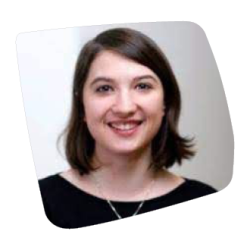
Stephanie Gauttier
Head of the research Team, Grenoble Ecole de Management
Dr Stephanie Gauttier is the head of the research Team Information Systems for Society at Grenoble Ecole de Management, the Vice Chair of the ReMO (Researcher Mental Health Observatory) Cost Action, and the Secretary of the International Society for the Scientific Study of Subjectivity. Stéphanie has been the head of the MCAA Policy Working Group (2020-2021) and the co-founder of the mentoring program REFERENT. An Information Systems professor, she investigates the concept of technology acceptance from an ethical and embodied perspective. She is especially interested in wearables, enhancement and assistive technologies for health and sensory issues.
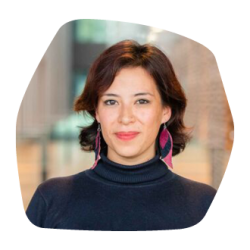
Stephany Mazon
Climate research coordinator, Finnish national research flagshi
Stephany Mazon is a climate research coordinator at the Finnish national research flagship - the Atmosphere and Climate Competence Center at University of Helsinki. Her work centers in designing events to engage the policy, business, and science sectors in dialogue.
She loves finding ways for science to serve society. On her TEDx talk, she outlines the importance of science communication. Stephany holds a PhD in Atmospheric Science (University of Helsinki).
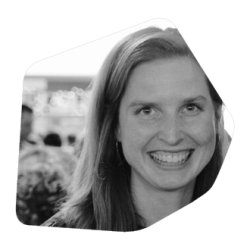
Sybille Luhmann
Policy Officer, DG Education, Youth, Sport and Culture
Sybille Luhmann is a policy officer at the Directorate General for Education, Youth, Sport and Culture. Here, she supports the Marie Skłodowska-Curie Actions (MSCA) team in feeding the excellent research of MSCA fellows back to a wide audience. She does so by coordinating the outreach initiative Science is Wonderful!, as well as the European Researchers’ Night, which features the newly created project “Researchers at Schools”.
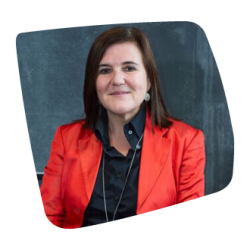
Teresa Riesgo Alcaide
General Secretary for Innovation, Spanish Ministry of Science and Innovation
Dª. Teresa Riesgo, Secretaria General de Innovación del Ministerio de Ciencia e Innovación y Presidenta del Centro para el Desarrollo Tecnológico Industrial (CDTI) desde 2020.
Doctora Ingeniera Industrial por la Universidad Politécnica de Madrid (1996), Catedrática de Tecnología Electrónica en la UPM (2003). Ha publicado más de 200 documentos científicos, ha participado en más de 60 proyectos de investigación, en muchos casos con empresas. Sus líneas de investigación se han centrado en el hardware para IoT, las arquitecturas reconfigurables y el diseño de sistemas digitales.
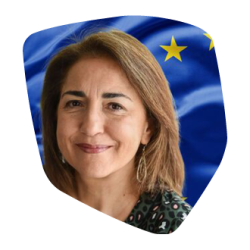
Themis Christophidou
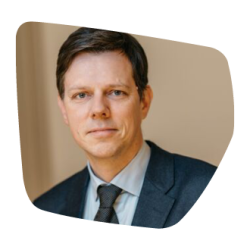
Thomas Jørgensen
Director of Policy Co-ordination, European University Association
Thomas Ekman Jørgensen is Director of Policy Co-ordination at EUA. His responsibilities include ensuring coherent policies for universities as well as overall policy development and managing cross-cutting issues with policy relevance.
Dr Thomas Jørgensen worked with EUA as Head of the Council for Doctoral Education for a number of years. He studied History and German Studies at the University of Copenhagen and the Free University Berlin. He received his PhD in History and Civilisation from the European University Institute in Florence in 2004 and worked as a postdoctoral fellow at the University of Copenhagen and at the Université libre\nde Bruxelles before coming to EUA. As a historian, he has worked on students and left-wing movements around 1968. He has also published on youth movements during World War I.
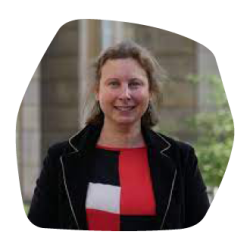
Vinciane Gaillard
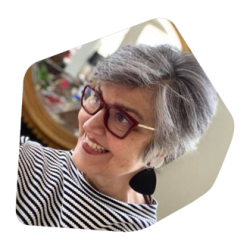
Vivi Stavrou
Executive Secretary of the ISC Committee
Vivi is a Clinical Psychologist and development worker with extensive international experience in humanitarian emergencies and post-conflict situations as a social development consultant, evaluator and researcher.\n She has worked with UN and development agencies, government ministries and services, and academic institutions in the areas of child protection, mental health and psychosocial support and health systems \ndevelopment, Health and Human Rights, and security sector reform.
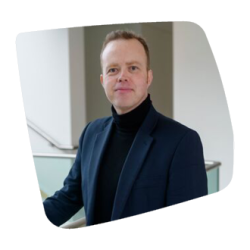
William Gallager
Full Professor of Cancer Biology at University College Dublin
A former Marie Curie Fellow (1997-1999), Professor William Gallagher is presently Full Professor of Cancer Biology at University College Dublin (UCD) and Deputy Director of Precision Oncology Ireland, a large-scale Science Foundation Ireland (SFI) Strategic Partnership Programme involving 5 academic institutions, 6 cancer charities and 8 companies (www.precisiononcology.ie). He previously led OPTi-PREDICT, an SFI Investigator Programme focused on identification and validation of prognostic biomarkers for early stage breast and prostate cancer.
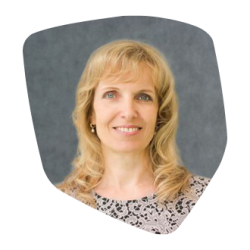
Zlatuše Novotná
CEITEC Masaryk University
latuše Novotná is the Head of Strategic Partnerships & International Relations at CEITEC Masaryk University, the main representative of CEITEC in EU-LIFE, and the Coordinator of Alliance4Life. Until 2017 she served as the Head of the Grant Office at CEITEC MU with the responsibility for a broad portfolio of research and innovation projects with the main focus on the policy and actions of the European Communities. She was a team member preparing the CEITEC project between 2009-2011. Before entering the academic environment in 2007, she spent almost 20 years in the commercial sector in international and Czech companies, as a business consultant, exploitation director, EU project manager, and EU competence team leader. Zlatuše received her doctoral degree at the University of Veterinary and Pharmaceutical Science in Brno and her Diploma in marketing and strategic business planning at the Czech Institute of Marketing in Prague.